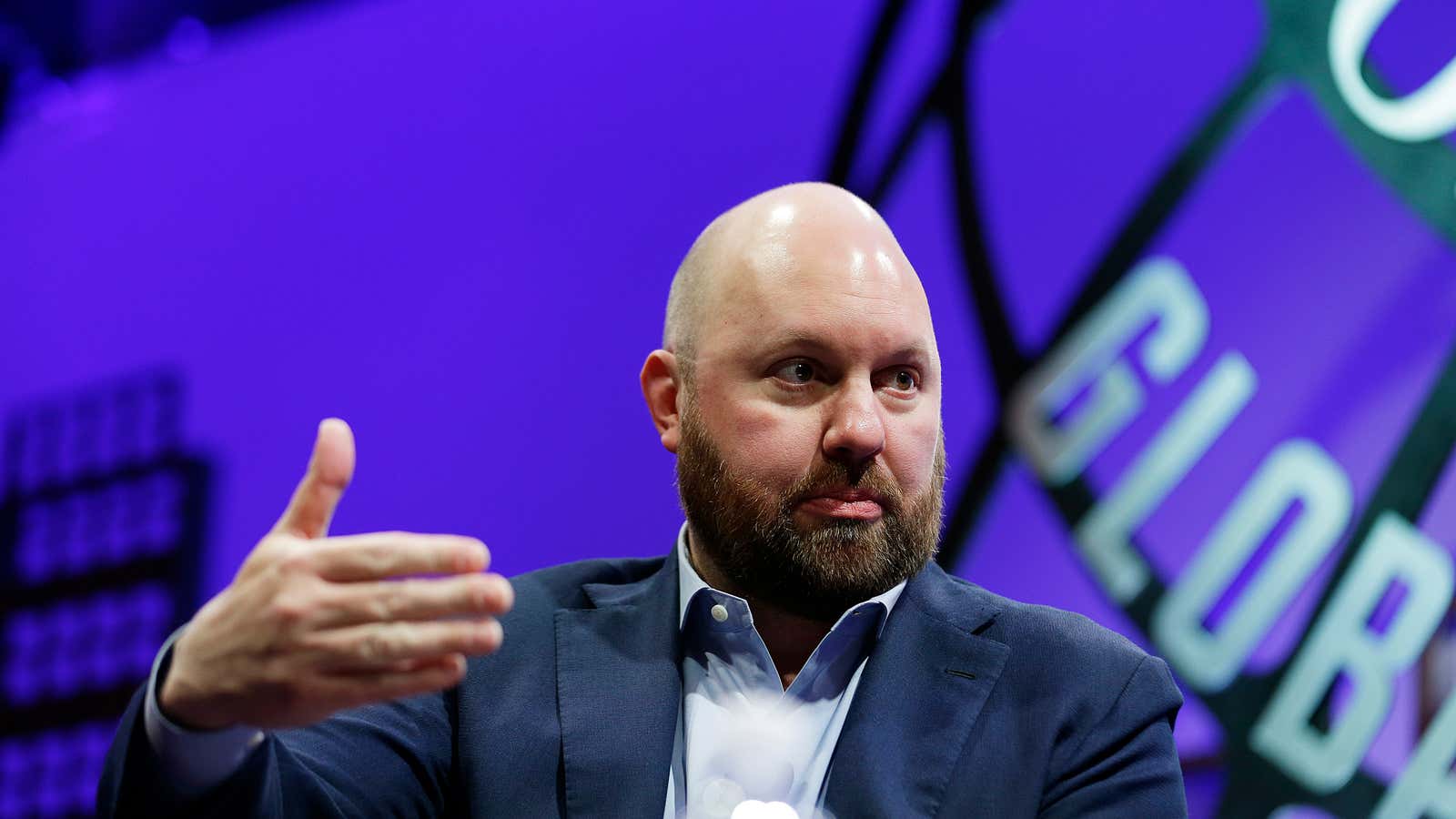Famed venture capitalist Marc Andreessen has said repeatedly that we are not in a tech bubble. But he’s getting fed up with Silicon Valley tech startups for some awfully bubble-like behaviors.
“This ‘fail fast’ thing is, frankly, completely out of hand,” Andreessen told Tim Ferriss, an entrepreneur best known for the “four-hour work week” notion, in a recent interview. “When I was a founder, when I first started out, we didn’t have the word pivot, right? We didn’t have a fancy word for it. We just called it a fuck up.”
Andreessen is also frustrated with startups that refuse to raise prices.
“It has become absolutely conventional wisdom in Silicon Valley that the way to succeed is to price your product as low as possible and then, under the theory that if it’s low-priced everybody can buy it, and that’s how you get to volume,” he said. “And we just see over and over and over again people failing with that … They don’t charge enough for their product to be able to afford the sales and marketing required to actually get anybody to buy it.”
“By the way,” he added, “it’s like, is your product any good if people won’t pay more for it?”
Call it a bubble. Or not. Either way, a tech scene in which companies flush with VC funding have grown accustomed to charging ultra-low prices to artificially boost growth and customer retention sounds pretty frothy.
Andreessen is often positioned as the counterpoint to Bill Gurley, another venture capitalist and a notorious bear who in April warned that investors were “seeing their fortunes put at risk from the very nature of the Unicorn phenomenon itself.” (“Unicorn” is industry slang for a startup valued at $1 billion or more.) So it’s unusual for them to be somewhat aligned in their assessment of tech trends.
In his essay, Gurley cautioned that startup founders had grown ignorant, if not altogether reckless, in their accounting practices. They’d been able to do this, he argued, because of how freely funds flowed in Silicon Valley until late last year. “Loose capital allows the less qualified to participate in each market,” Gurley wrote. “The reason we are all in this mess is because of the excessive amounts of capital that have poured into the VC-backed startup market.”
Gurley’s screed hit as the prospects for startups, billion-dollar and otherwise, were starting to look grim. After tech funding tumbled in the fourth quarter of 2015, the effects were painful and immediate. Companies cut perks and laid off workers. In the on-demand space particularly, several startups have since gone under. They include ride-hailing platforms Sidecar and Shuddle, as well as meal-delivery company SpoonRocket. Signs of a further shakeout are plentiful.
Oh, and other companies raised prices. Because that’s what happens when funding dries up in a frothy tech market—bubble or not.




